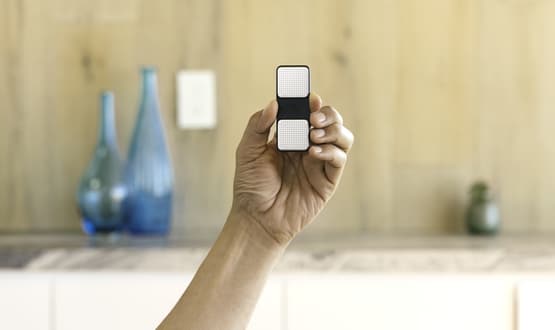NHS could save £81m a year though new tech designed to prevent strokes

More than 6,000 devices designed to prevent strokes are to be rolled out as part of a national campaign that could save the NHS £81 million a year.
The technologies are being distributed to GP practices, pharmacies and NHS community clinics across England during National Heart Month in February.
This includes Kardia Mobile, a small device that is able to detect irregular heart rhythms – or atrial fibrillation (AF) – in 30 seconds, by recording the electrical activity of the heart through a patient’s fingertips and sending the data to an app.
The app then allows heart rhythm recordings to be viewed, saved and shared with healthcare professionals allowing for faster detection and diagnosis of AF.
Another device is the Watch BP blood pressure cuff, which can also detect heart rhythms.
The devices are being rolled out by the 15 NHS and care innovation bodies known as Academic Health Science Networks (AHSNs), in the first six months of this year as part of an NHS England-funded project.
Figures show that more than 420,000 people across England have undiagnosed irregular heart rhythm, which can cause a stroke if not detected and treated appropriately. Treatment is usually performed through blood-thinning medication to prevent clots that lead to stroke.
The project aims to identify 130,000 new cases of AF over two years, which could prevent at least 3,650 strokes and potentially save 900 lives.
It is hoped the project will save the NHS £81 million annually.
Professor Gary Ford, stroke physician and lead on the project for the AHSN Network, said: “More than 420,000 people throughout England are unaware they have irregular heart rhythms and of the dangers that this can pose to their health.
“We have highly effective treatments that can prevent these strokes, but early detection is key.
“Using cost-effective technology, the NHS will now be able to identify people with irregular heart rhythms quickly and easily. This will save lives.”
This is far from the first NHS-backed project that supports innovation in health technology.
Back in November last year, Digital Health News reported that 11 new innovations were being promoted by NHS England, including a device designed to spot early signs of sepsis.





7 Comments
Just to clarify a couple of points: NHS users will be using our ‘Basic’ level software where ECG’s cannot be stored on phones or tablets. Kardia Mobile gives a live ECG trace on your phone or tablet and only tales 30 seconds. Recordings that need to be kept, have to be emailed immediately or they will be lost. The ECG recording is automatically converted to a pdf in the body of the email. We do not connect directly to any patient date management systems currently.
NHS users are being instructed to only use their nhs.net address and not personal ones for obvious security reasons.
The upcoming GDPR regulations are to be introduced in May and we, along with many other manufacturers, are working hard to ensure our compliance.
The devices are being managed by the AHSN and they have introduced a registration process for the device for every user. Most local AHSN’s have also introduced policies and procedures on using the product.
Regarding evidence for screening, I suggest referring to the recent ‘Rehearse AF’ study from Swansea. This may offer some reassurance.
On the ‘false positive’ note, Kardia Mobile offers 98% accuracy and 97% specificity which is about the same as a standard ECG machine. This data is researched and published.
I hope this helps to clear up some of the concerns. Please get in touch if you have any further queries.
I presume the (NHS?) clients have asked for ECG PDFs to be sent by email? [I know other projects are doing the same]
I don’t get why we are still doing this, many (health) standards from mid 80’s are better than email+pdf. GP systems are EPR systems and should be getting structured data that can sit in the patients medical record rather than an attachment.
I share some of the cautions expressed by ConcernedCyber- there is a risk of patient level data being retained on Healthcare workers smartphones. My other concern is that this is potentially being used as a form of screening without the robust evidence to justify a formal screening process. I understand QOF May change to focus on case funding in a high risk group. There is a workload and resource issue in managing false positives- uncertain ?arrythmia requiring GP time and ECG’s (how is this being funded outside of a formal screening program- and no it is not core GP work to undertake screening by stealth and the workload consequences thereof).
Sounds like an excellent idea, similar to the EU Nightingale project (https://www.nightingale-h2020.eu/) with UCL being the UK entry and believe this was won by a UK firm.
To answer ConcernedCyber, the EU project would be expected to use some form of OAuth2 (SMARTonFHIR or maybe UMA based HEART?) with the messaging standard recommending HL7 FHIR.
Do share your concerns on un-managed devices, we don’t to tend to look out of the box?
Hi Tor
It was actually AAA Medical. http://www.aaamedical.co.uk and you are correct, we will use HL7 FHIR in our solution. 2 other UK companies made it as part of consortiums but we were the only UK bidder. We use a lot of A.I. to spot trends and patterns in our solution.
Any advice or guidance would be greatly appreciated.
You can reach me at davehurhangee@aaamedical.co.uk
I’m not sure that the manufacturers of these devices are making that claim!
So effectively, although I cannot fault the idea, we will be introducing multiple un-managed devices into GP Practices, with limited security, which will need to upload data into GP systems. How does this fit with the improved security we are all supposed to be applying?
Comments are closed.